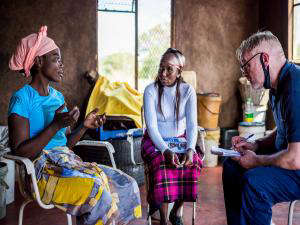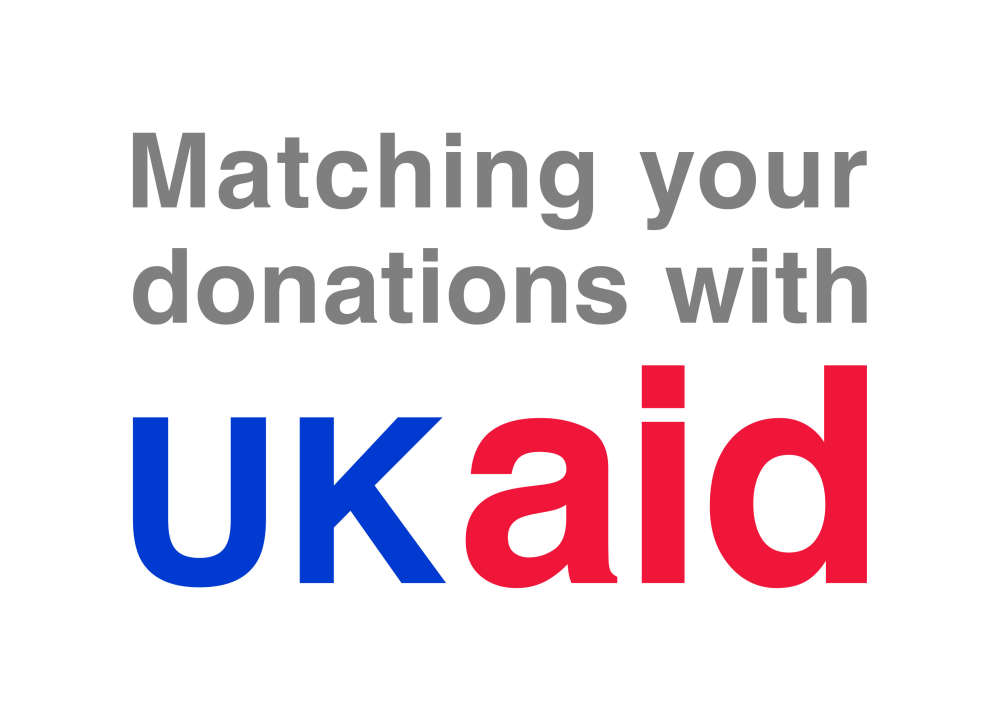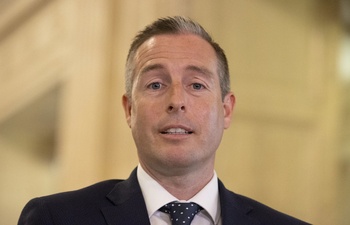
By Q Radio news/David O'Hare
Trócaire Communications Officer, David O’Hare, recently visited Zimbabwe where he saw at first hand the devastating impact of climate change and Covid-19 on communities.
Life is a daily struggle for mother-of-two, Thandekile, and her community in the Bulawayo region in southwest Zimbabwe.
The community was already struggling to provide for their families because of the disastrous effects of climate change and the challenges of Covid-19.
But in recent weeks the situation has become much worse.
Most of the people in the region depend on rain-fed agriculture to feed their families.
It’s coming to the end of the rainy season and unfortunately the rains have failed.
Instead of fields full of maize and other crops ready to be harvested, there are vast
swathes of stunted or dead plants.

David O'Hare interviews 32 year old mother-of-two, Thandekile (left)
‘It’s going to be a very difficult year ahead” - the 32-year-old widow told me when I
met her on a recent visit to the south African country.
“I was given some land by my late husband’s uncle and I was growing groundnuts, sorghum, millet, maize
and melons.
Now it looks like I will only harvest two or three bags of the grains and some melons. I would usually be expecting a yield of twelve bags,’ Thandekile
told me when I met her on a visit to Zimbabwe.
It was a scorching hot day with temperatures in the late 30’s when I met Thandekile, who along with her two children Nomatter (11) and Forward (8)
feature on this year’s Trócaire Lent boxes.
I saw at first hand the challenges facing people, and the supports Trόcaire and our partners are providing to help overcome
these challenges.

Crops are failing in Zimbabwe after the rains failed to materialise
I was delighted to spend time with Thandekile and other members of the community and to get an update on the devastating situation in the region.
Farmers I spoke to are estimating that they will lose 75% of their harvest this year, meaning critical food shortages for these communities in the coming months.
Thandekile told me that the growing season was looking quite good, but then there were no rains in February or March and that changed everything.
Coupled with this disastrous harvest is the effect of rising food prices.
As in many countries around the world, including here at home, the war in Ukraine has seen the price of food and fuel sky-rocket in Zimbabwe in recent weeks.
This is having a profound impact on people who already had very little disposable income.
‘The price of food was already going up because of Covid but now everything is costing more – vegetable oil that we cook with, salt, soap, sugar, batteries and candles.
The little money I have will have to be spent on food. I don’t know how I will pay for the children’s school fees and fear they will be sent home if I can’t pay,’ Thandekile said.
The World Food Programme (WFP) has warned of an impending food crisis in the country after global and regional food prices spiked upwards following Russia’s invasion of Ukraine.
And according to the Zimbabwe National Vulnerability Assessment Report, chronic malnutrition is already endemic throughout the
country.
An estimated 60 per cent of Zimbabweans - or 7.5 million people - face acute food insecurity.
Basic food prices keep increasing to such an extent that most urban residents cannot afford to buy food.
With donations made in Ireland, Trόcaire is working with Thandekile’s community and many others in Zimbabwe to try to ensure that they are able to survive these latest shocks.
Thandekile’s community benefits from a community garden which has been funded by Trόcaire and sees each family able to cultivate four beds each.
We have installed a solar pump that ensures the garden is kept irrigated despite the lack of rain.
Thandekile said that she has been able to grow kale, spinach, beetroot, tomatoes and carrots.
‘This means that the children are able to eat a more balanced diet and I even have some produce left over to sell. If we didn’t have the garden things would be even more difficult for us,’ she told me.
Things are bad in Zimbabwe and the coming months are going to be extremely difficult for the people there. But donations to the Lenten Appeal will enable Trόcaire to continue supporting people in their time of need and provide hope where previously there was very little.
The sooner donations are received the sooner we will be able to put them to good use all over the developing world.
You can return your Box to your local parish or make a donation at DONATE BUTTON or by calling 1800 404 408 ROI or 0800
912 1200 NI.
And remember all donations made to the appeal in NI before 1 st June will be doubled by the UK government.

Thandekile clutches a Trócaire Lent box



 Adams confirms legal action against Government block on internment payout
Adams confirms legal action against Government block on internment payout
 Teenager dies following suspected stabbing attack in Dublin
Teenager dies following suspected stabbing attack in Dublin
 Challenge to minister’s decision to refuse integrated school proposals dismissed
Challenge to minister’s decision to refuse integrated school proposals dismissed
 Tulip Festival Returns to Glenarm Castle with Northern Ireland’s First-Ever Squishmallows Experience
Tulip Festival Returns to Glenarm Castle with Northern Ireland’s First-Ever Squishmallows Experience
 Business Beats Cancer Belfast Raises an Incredible £50,000 for Cancer Research UK
Business Beats Cancer Belfast Raises an Incredible £50,000 for Cancer Research UK